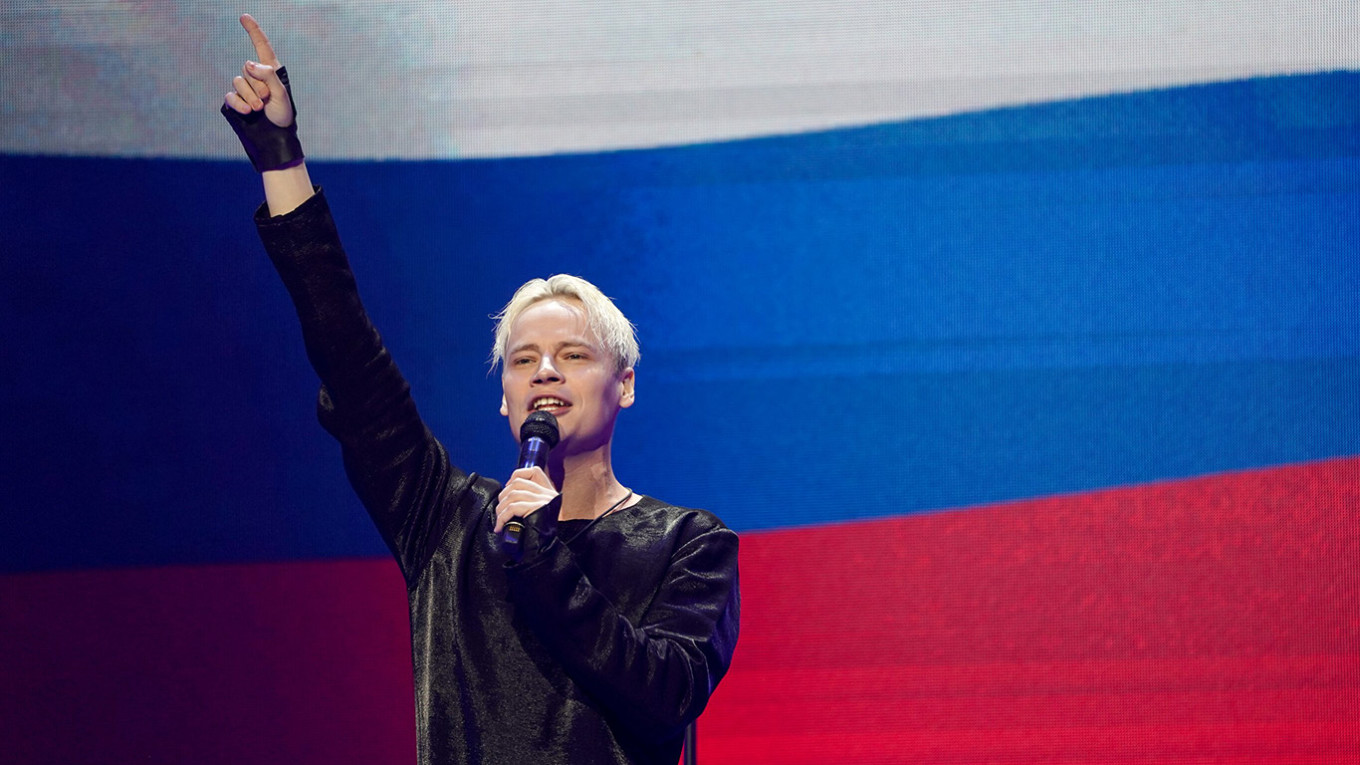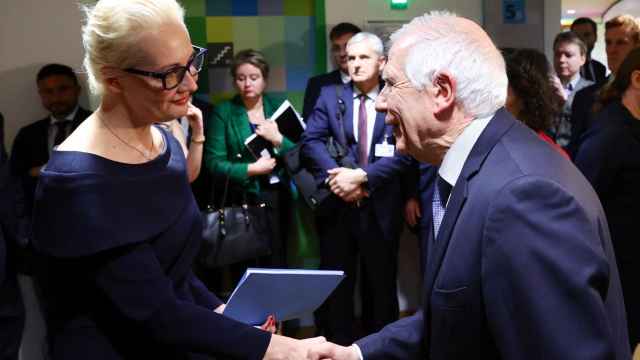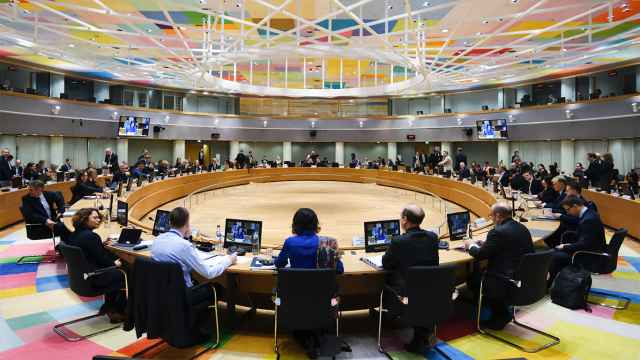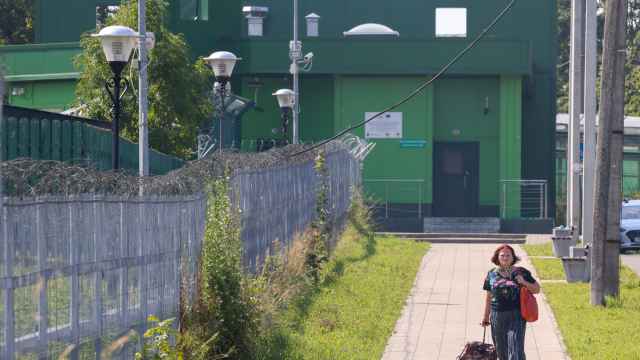Brussels on Monday sanctioned Russian pop singer Shaman over his role in promoting Moscow’s full-scale invasion of Ukraine, applying restrictive measures against the performer that include an asset freeze and travel ban.
“Since the beginning of Russia’s war of aggression against Ukraine, [Shaman] has repeatedly participated in Kremlin-organized concerts, including the Kremlin’s anniversary event for that war, and given concerts in the illegally occupied regions of Ukraine,” the EU said in its sanctions listing.
Shaman, whose real name is Yaroslav Dronov, also performed “as part of troop entertainment events for the Russian Armed Forces,” the listing added.
The pro-war star was among 69 people and 47 legal entities added to the EU’s list of sanctions targeting violators of Ukrainian territorial integrity and independence. Overall, the bloc has applied restrictive measures against more than 2,200 individuals and entities as part of sanctions against Russia.
Russian pop singer Polina Gagarina was also sanctioned on Monday for “generating significant revenue” from state-sponsored events celebrating the annexation of Crimea and four other Ukrainian regions under Moscow’s partial control.
Similarly, actor Ivan Okhlobystin was sanctioned for participating in “state-sponsored propaganda events and by visiting and supplying goods to Russian troops and separatist forces deployed in Ukraine.”
Besides cultural figures, the EU sanctions targeted officials and organizations — including the Artek youth camp and the Akhmat Kadyrov Foundation — said to be linked to the forced deportation of Ukrainian children to Russia.
The EU restrictions also include members of the army and the judiciary, as well as Federal Security Service (FSB) employees said to be involved in the persecution of the Crimean Tatar minority.
EU member states last week signed off on their 14th sanctions package banning Russia’s lucrative transshipment of liquefied natural gas (LNG) via Europe and making it more difficult for Russia to use a “shadow fleet” of vessels to circumvent EU sanctions on its crude oil.
A Message from The Moscow Times:
Dear readers,
We are facing unprecedented challenges. Russia's Prosecutor General's Office has designated The Moscow Times as an "undesirable" organization, criminalizing our work and putting our staff at risk of prosecution. This follows our earlier unjust labeling as a "foreign agent."
These actions are direct attempts to silence independent journalism in Russia. The authorities claim our work "discredits the decisions of the Russian leadership." We see things differently: we strive to provide accurate, unbiased reporting on Russia.
We, the journalists of The Moscow Times, refuse to be silenced. But to continue our work, we need your help.
Your support, no matter how small, makes a world of difference. If you can, please support us monthly starting from just $2. It's quick to set up, and every contribution makes a significant impact.
By supporting The Moscow Times, you're defending open, independent journalism in the face of repression. Thank you for standing with us.
Remind me later.






